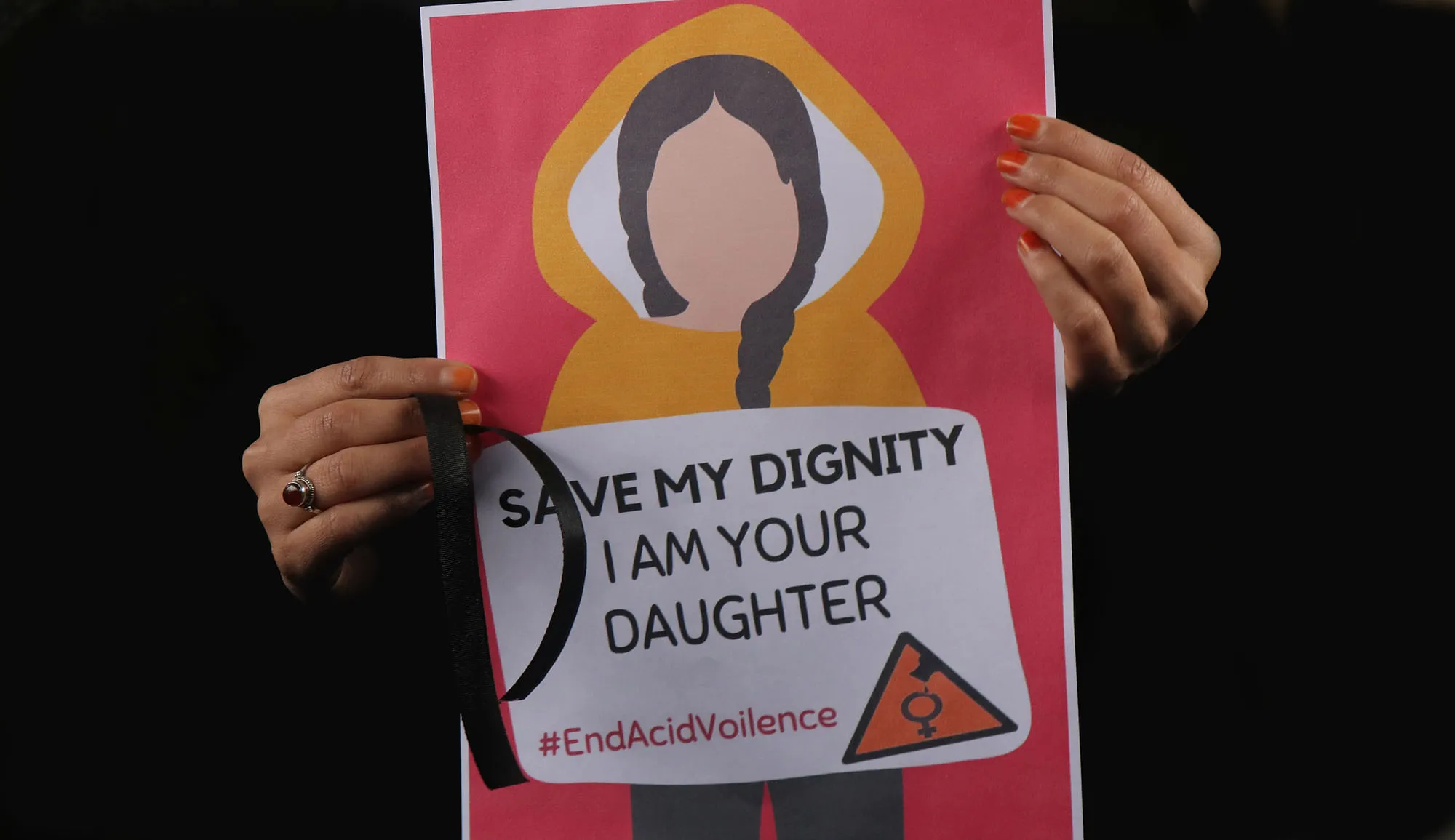Srinagar: Voluntarily throwing acid with intention to cause grievous hurt is punishable with imprisonment for a term which shall not be less than ten years and it may extend to life imprisonment, under the provisions of law.
The offence of throwing acid, committed against any man or woman, is punishable under Section 326 A of Indian Penal Code (IPC).
This Section was inserted in IPC under Criminal Law (Amendment) Act, 2013, creating special provisions for the victims of acid attack.
“The offenders, convicted under Sections 326 A, shall be imprisoned for a minimum sentence of ten years which may increase up to life imprisonment along with fine; that fine should be just and reasonable to meet the medical expenses incurred by the victim,” said advocate Mir Naveed Gul, who has been appointed by District Legal Service Authority Srinagar as free legal aid counsel for the victim targeted on Tuesday with acid.
Advocate Gul said that most of the reported acid attacks were committed on women, particularly young women, for spurning suitors; for rejecting proposals of marriage or for denying dowry etc.
“Acid throwing is an extremely violent crime by which the perpetrator of the crime seeks to inflict severe physical and mental suffering on the victim. In the recent acid attack case of Srinagar, we will seek life imprisonment for the perpetrators of crime as envisaged under law,” he said.
Advocate A A Teli, who is currently contesting the Nowshera acid attack case as special prosecutor, said, “Life imprisonment must be minimum punishment for the acid attack cases.”
In December 2014, a 22-year-old law student was grievously injured in the acid attack near Nowshera, on the city outskirts when she was on her way to her college. It was only after a fortnight following the attack, that the police arrested the accused duo— Irshad Ahmad Wani alias Sunny and Muhammad Omar for their alleged involvement in the incident.
The police sought punishment for the accused on three counts under Sections 326-A (voluntary throwing acid to cause grievous injury), 120-B (criminal conspiracy) and 201 (destruction of evidence) of the Ranbir Penal Code (RPC).
“These sections can get the accused a punishment of rigorous imprisonment for 10 years, which can be extended up to life imprisonment,” said advocate Teli.
He added that the Special Investigation Team set up for the Nowshera acid case had done professional investigation under the supervision of the then Superintendent of Police Hazratbal Rayees Ahmad. Special prosecutor A A Teli had successfully contested the Baghat acid case in which Principal District and Sessions Court, Srinagar had awarded 10-year rigorous imprisonment to Riyaz Ahmad Nath of Maisuma Colony, Chanapora, after being convicted in an acid attack case.
Nath was also slapped a fine of Rs 10,000 under Section 307 (attempt to murder) for throwing acid on a 30-year-old woman, a school teacher, at Parraypora locality of Srinagar on January 2, 2013. The trial of the case was concluded within 10 months.
“The section 326A was enumerated in penal code in 2013 before the occurrence of Baghat acid attack case. Therefore, the punishment sought against the convict was under Section 307 RPC,” Teli said while replying to a query.






